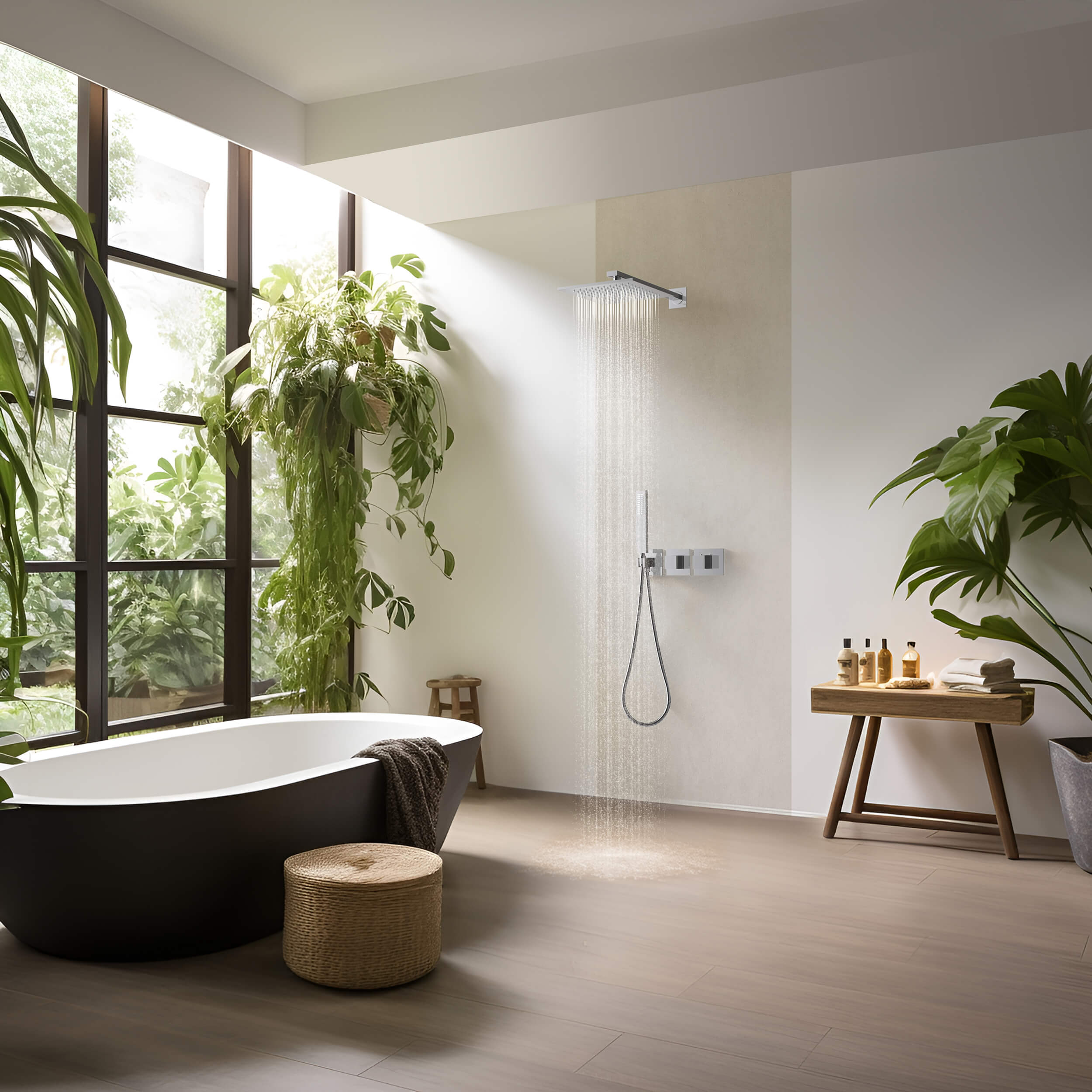Article: Exploring Shower System Selections

Exploring Shower System Selections
Exploring Shower System Selections: A Comprehensive Guide
Selecting the right shower system can transform your daily routine into a luxurious and relaxing experience. With a plethora of options available, it’s essential to understand the different types of shower systems and their features to make an informed decision. Here’s a detailed guide to help you navigate through the various shower system selections and find the perfect fit for your bathroom.
- Understanding Your Needs and Preferences
Before diving into the types of shower systems, consider your specific needs and preferences:
- Frequency of Use: How often do you and your family use the shower?
- Comfort and Convenience: Do you prefer a simple, straightforward shower or a more luxurious experience?
- Space Constraints: What is the size and layout of your bathroom?
- Budget: What is your budget for the shower system?
Having a clear understanding of these factors will help you narrow down your choices.
- Types of Shower Systems
There are several types of shower systems, each offering unique features and benefits:
a. Manual Mixer Showers
Manual mixer showers combine hot and cold water supplies to deliver water at the desired temperature. They are straightforward and easy to use but lack advanced features.
Pros:
- Simple to install and operate
- Budget-friendly
Cons:
- No temperature control feature, which can lead to fluctuations in water temperature
b. Thermostatic Mixer Showers
Thermostatic mixer showers maintain a consistent water temperature, even if the water pressure fluctuates. They are ideal for families with young children or the elderly, as they reduce the risk of scalding.
Pros:
- Consistent water temperature
- Enhanced safety features
Cons:
- More expensive than manual mixers
- Requires professional installation
c. Electric Showers
Electric showers heat water on demand using an internal heating element. They are independent of the hot water system, making them ideal for homes with low hot water supply.
Pros:
- Provides instant hot water
- Energy-efficient as it heats only the water you use
Cons:
- Lower flow rate compared to mixer showers
- Requires a dedicated electrical connection
d. Digital Showers
Digital showers offer precise control over water temperature and flow through a digital interface. They often come with remote control options and can be programmed for different users.
Pros:
- Precise temperature and flow control
- Modern, sleek design
Cons:
- Expensive
- Requires professional installation
e. Power Showers
Power showers incorporate a built-in pump to boost water flow, making them ideal for homes with low water pressure. They can be either manual or thermostatic.
Pros:
- Increased water flow and pressure
- Suitable for low water pressure systems
Cons:
- High water and energy consumption
- Noisy operation
f. Custom Shower Systems
Custom shower systems allow you to combine multiple showerheads, body sprays, and hand showers for a spa-like experience. They can be tailored to your specific preferences and bathroom layout.
Pros:
- Fully customizable
- Luxurious and comprehensive showering experience
Cons:
- Very expensive
- Complex installation process
- Key Features to Consider
When selecting a shower system, consider the following key features:
- Water Pressure and Flow Rate: Ensure the system is compatible with your home's water pressure. Higher flow rates offer a more luxurious experience.
- Spray Patterns: Look for adjustable spray patterns to customize your shower experience.
- Eco-Friendly Options: Consider water-saving features to reduce water consumption without compromising performance.
- Ease of Installation: Some systems require professional installation, while others can be installed by a skilled DIYer.
- Maintenance: Opt for systems with easy-to-clean features and accessible parts for maintenance.
- Style and Finish
Choose a shower system that complements your bathroom’s décor. Common finishes include chrome, brushed nickel, matte black, and oil-rubbed bronze. Ensure the style and finish of the shower system match other fixtures in your bathroom for a cohesive look.
- Budget Considerations
Shower systems range in price from affordable options to high-end luxury systems. Set a budget and try to balance quality with cost. Investing in a durable, high-quality shower system can save you money in the long run by reducing maintenance and replacement costs.
Final Thoughts
Choosing the right shower system involves understanding your needs, exploring various types, and considering key features, style, and budget. Whether you opt for a simple manual mixer shower or a luxurious custom system, the right shower can enhance your daily routine and add value to your home. Take your time to research and select the best option for a refreshing and enjoyable showering experience.
